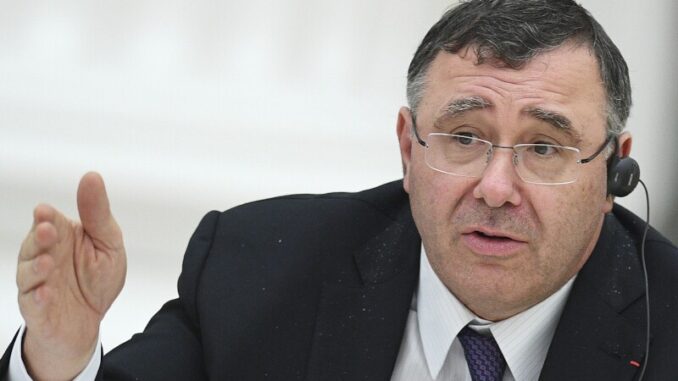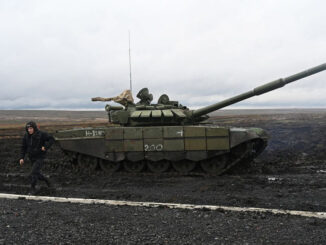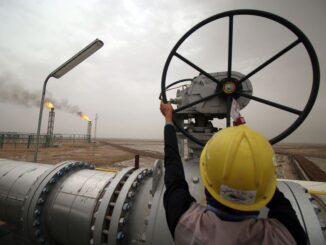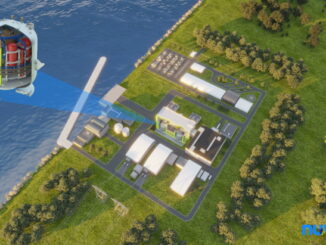
TotalEnergies signed four contracts with Iraq’s oil ministry on Monday that will allow it to finally start work on a $10 billion energy megaproject that it first agreed in 2021.
CEO Patrick Pouyanne said he hoped the inking of the contracts will lure more investors to Iraq’s oil and gas sector, which has witnessed a seemingly irreversible decline in interest in recent years.
In particular, the big Western international oil companies (IOCs) have been drifting away from Iraq, because of the country’s tough fiscal terms, better opportunities elsewhere and shifting investment priorities.
“Now we are ready to go for execution of a project that has been long awaited,” Pouyanne said at the signing ceremony in Baghdad on Monday.
“These projects … represent an investment of more than $10 billion. I have hope also that it will be a strong signal to other investors to come to Iraq,” he added.
Total’s gas growth integrated project (GGIP) consists of a 600 million cubic feet per day gas capture project, a 5 million barrel per day seawater injection project to maintain reservoir pressure at key oil fields and a 1-gigawatt solar power project.
Its fourth component, raising the Ratawi oil field’s production from 85,000 b/d to 210,000 b/d, is the one that will generate profits for the outside investors — Total and QatarEnergy.
Political turmoil and a dispute over Iraq’s proposed stake had delayed the launch of the project, frustrating Total and threatening to further damage Iraq’s reputation as a place to do business.
Vote of Confidence
“It’s good they got it over the line,” said Robin Mills, CEO of Dubai-based consultancy Qamar Energy, describing GGIP as very important for Iraq.
“It’s a Western IOC coming in — not in a small way, but in a big way — when all the other Western IOCs have been leaving [or reassessing their positions]. So, it’s a vote of confidence, amid lots of votes of no confidence,” he said.
Mills highlighted the project’s water injection component, in particular, as “crucial for the health of the oil fields” and for Iraq’s ambitious future production plans.
He also lauded the gas capture component, which will supply local power plants with gas that is currently flared at oil fields around Basrah.
The French major and Iraq’s oil ministry announced in early April that they had reached a deal, which brought in QatarEnergy as an investor, with a 25% stake, alongside state-run Basrah Oil Co. with 30%, and Total with 45%.
But it took another three months to finalize the paperwork.
Pouyanne said the signing of final contracts demonstrated “the continuity of the voice of the state of Iraq” — despite a change of government last fall after a year of political turmoil following the initial agreement.
Bucking the Trend
He described the Iraq megaproject as the “best demonstration of our new strategy” — embodied in the name TotalEnergies — of helping to tackle climate change, making good use of all natural resources, including solar and wind, and reducing emissions.
The GGIP aims to cut Iraq’s annual emissions by 15 million tons of CO2 equivalent.
Total’s move in Iraq bucks the recent trend among major oil companies, with Shell and Exxon Mobil both pulling out of its oil sector in the past six years, Chevron dropping plans to negotiate an entry and Malaysia’s Petronas confirming it was weighing a sale of its operated stake in the Garraf oil field.
It might also prompt some companies to think twice about future opportunities in Iraq, whose abundant oil and gas resources have never been in doubt.
“You might see other Western IOCs thinking, yeah, perhaps we should take a second look at Iraq if things are improving,” says Mills.
Shell, which operates the Basrah Gas Co., the other major gas capture project in Iraq, would like to do more in the gas sector, given the opportunity, he adds.



